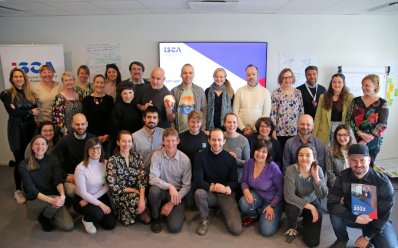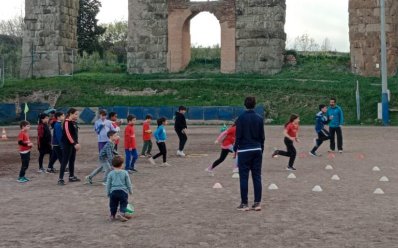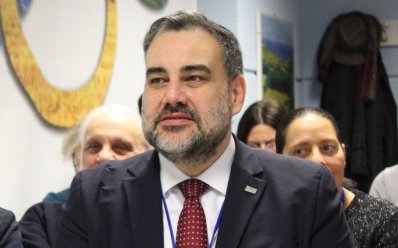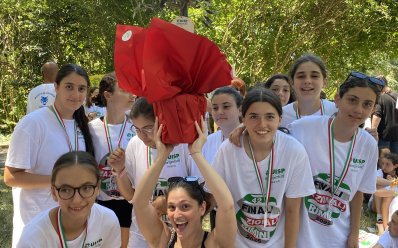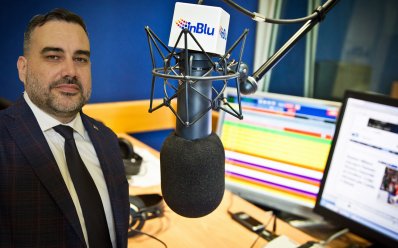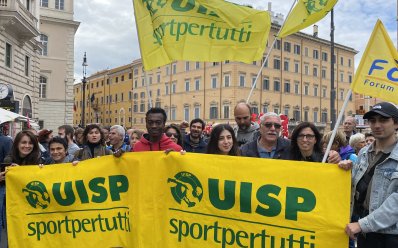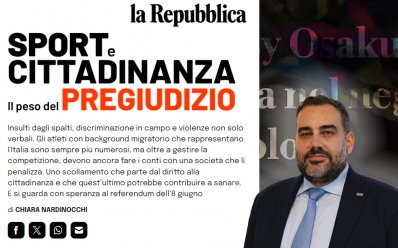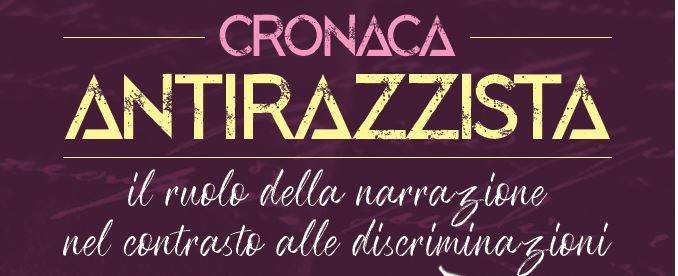Kick off meeting of the project Icehearts Europe for the inclusion of kids
Project kickoff in Copenhagen: for the first time, a health-related fund is financing a sports project. D. Conti e M. Giammaria speaking
On April 3-5 in Copenhagen it has been organised the first in-person meeting of the Icehearts Europe project coordinated by ISCA-International Sport and Culture Association and funded by the European Commission's DG Health, in which Uisp is involved as a partner. This is the first time that the fund intended for health-related projects finances such a large project to the sports sector: 3 years of project, 13 different organizations from 9 European countries involved in testing a new model of care for youngsters in the area of disadvantage and marginalisation, 14 associated partners from as many countries who will participate in some exchange activities and knowledge of the project results, for a funding from the commission of about 4 million euros.
The project is complex and very ambitious: it aims to transform a good practice developed and tested in Finland for about 30 years into a model for other European countries that will be able to adapt the core values to their own context.
Icehearts is based on the training of mentors who follow a group of socially excluded children (due to mental distress, families in situations of indigence and poverty, at risk of crime) from the age of 6 until they turn 18, placing them in play-recreational activities, sports, accompaniment in homework, mediation between institutions, families and school. A long-term project that aims to gradually integrate the most problematic children into larger groups, where everyone can find their own way, make friends and overcome learning difficulties. The mentor thus takes on the role of coordinator, cultural mediator and support for both children and families.
The high success rates have shown how projects of this type have enormous value in combating the phenomena of exclusion of boys and girls, of strengthening their self-esteem, and above all of supporting families who often lack the strength and knowledge to navigate the care sector, thus ending up not understanding the needs of their children.
In fact, one of the problems most emphasized by all the participating countries is the difficulty that many families with problematic children have in finding information from the various institutions: school, sports centres, after-school programs, social services, and health services often do not talk to each other and work in watertight compartments, further alienating families and children from what could be possible help.
For Uisp, Daniela Conti, head of Intercultural and Cooperation Policies, and Marta Giammaria, head of the Project Office, were present at the initial meeting. "These three days of meeting were very intense," said Daniela Conti, "Isca managed to organize several sessions of discussion and confrontation among about 40 sports educators, project managers, psychologists and sociology professors who in some cases it was the first time they knew each other. It certainly helped a lot the mode of icebreaking and stops to get some physical exercise and especially the many working groups that helped us to focus on the strengths and weaknesses, the needs of each partner country, the differences among the various cultural contexts and in the management of children and adolescents in schools."
Marta Giammaria explains Uisp's role: "It will be to test the model in several Italian cities over the next year and for 18 months, which will be chosen based on the characteristics that emerged from the work of the first year of the project. There will be five countries called to serve as pilots, in addition to us Spain, Slovenia, Estonia and Denmark. Moreover, Uisp will participate in all phases: creation of the European model, elaboration of an international workshop, organization of a national workshop and an international meeting in Italy, and participation in the evaluation of the project."
The methodological manual will be drafted by the Italian Institute of Public Health, which will be responsible for understanding similarities and differences in each country and suggesting possible forms of experimentation. Present for the ISS were Prof. Giovanni Capelli and Dr. Ilaria Luzi. The evaluation was entrusted to the University of Cassino, in particular Professor Simone Di Gennaro and Dr. Alice Iannacone. Uisp will also have the opportunity to work with these Italian partners in organizing a part of the workshop to Italian mentors.
The next in-person meeting will be in Helsinki in September for a study visit during which we will have the opportunity to go deep into the Finnish model and begin to think about how it can be transferred to the Italian context.
Funded by the European Union. Views and opinions expressed are however those of the author(s) only and do not necessarily reflect those of the European Union. Neither the European Union nor the granting authority can be held responsible for them
Ufficio progetti - Sede Uisp Nazionale
L.go Nino Franchellucci, 73 00155 Roma
Tel.: +39.06.43984350 - 345 - 346
Fax: 06.43984320
e-mail: progetti@uisp.it

